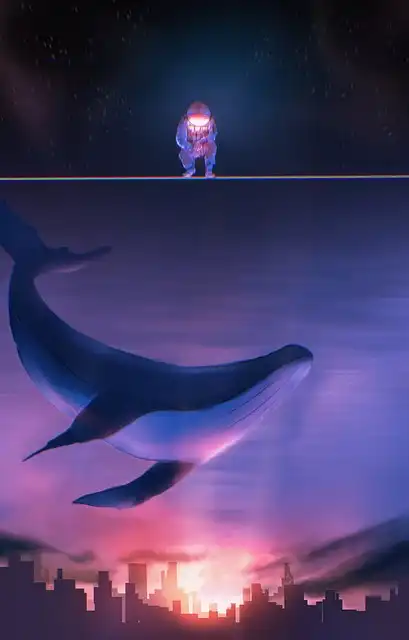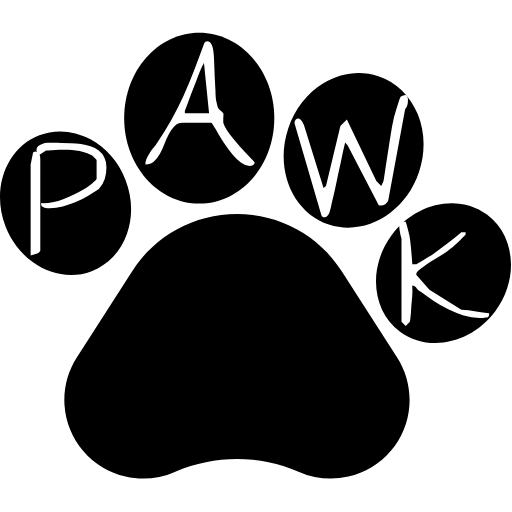This marine biologist discovered a unique blue whale population in Sri Lanka

In a personal essay she penned for the New York Times, de Vos recounts a handful of fellow scientists from wealthier nations who questioned her authority as a researcher from an impoverished country, assuming that she would “lack the knowledge, know-how and interest to participate in marine conservation.”
” I’m driven by attempting to make a change,” specifically around the adverse narrative lots of Sri Lankans hold for the sea, she says. “I desire people to love the sea … to acknowledge the sea as this incredible room that is life-giving in numerous methods.”
Greater than two decades on, de Vos is now one of Sri Lanka’s a lot of distinguished scientists– well known for supporting the nation’s nascent marine biology scene. She is also an ardent champion for higher diversity amongst researchers in sea conservation.
“There were usually stories of drownings that featured individuals that mosted likely to sea,” she claims. Lots of people in Sri Lanka never ever find out just how to swim, regardless of residing on an island so stunning it’s commonly called the “pearl of the Indian Sea.”
Along with the whales, de Vos also evaluates the biodiversity of their deep-sea setting. She performed, as far as she knows, the very first such audit of the northern Indian Ocean in 2022. “I do these points from a conservation perspective … People are getting an increasing number of strong about what can be performed in these deep-sea atmospheres,” she says, citing undersea mining as a potential threat. “I collaborate with whales and that’s my key love. Yet the whales need a flawlessly healthy community because they don’t simply reside in a bubble where everything around them does not bother them.”
De Vos brought the threat of delivering to light in 2012. It “started an entire cycle of discussions” with the Sri Lankan federal government, International Whaling Compensation, World Delivery Council and other bodies. These talks culminated in success in 2022, when the globe’s largest container delivery company, the Mediterranean Shipping Firm, introduced it would reduce the rate of its ships when traveling around the island and take on a much more south route that stayed clear of the whales.
De Vos doesn’t want others to experience what she did. “My objective is to give away everything, whether it’s my understanding or suggestions on just how to do something much better,” she claims. “I always inform people when I pass away, I do not desire everything [I have actually done] to end.”
A crucial purpose of de Vos’ work is to secure blue whales from ship strikes. Sri Lanka exists along one of the globe’s busiest delivery routes, and in a survey of 14 stranded whales that had actually died from ship strikes in 2010– 2014, a total amount of nine, or more than 60 percent, were blue whales.
Her love for the ocean, nevertheless, came from another source: previously owned National Geographic publications her daddy would earn from the neighborhood bookshop. “It was just the photos that really drew me in,” de Vos states.
The Sri Lankan marine biologist was aboard a study vessel near her home island in 2003 when she detected six blue whales gathering. A brilliant red plume of whale waste was spreading out throughout the water’s surface area.
I’ll show you,'” she claims. “In numerous ways, I’m happy for the difficulties– they really made me that I am. They made me have to work superhard and truly grind at what I do.”
The trip hasn’t always been smooth sailing. When she used for college, the naysaying began. “There’s no range in this nation for an aquatic biologist,” people would say. “They couldn’t recognize that there can be work, there could be jobs out mixed-up,” de Vos says. “I constantly joke since possibly people thought I was going to go to university and after that come to be a fisherwoman.”
Today, de Vos remains to examine cetaceans via the Sri Lankan Blue Whale Project, which she launched in 2008. “We have the lengthiest running dataset of blue whales in this component of the globe,” she states, including a picture catalog of thousands of individuals in the population.
By the time she transformed 17, de Vos had narrowed her career course to marine biology. No neighborhood universities supplied such a course, and she hadn’t listened to of anyone from Sri Lanka that had ever before ventured abroad to seek the topic, but that didn’t hinder de Vos. Neither did just missing out on the needed grades for her dream institution, the College of St. Andrews in Scotland, which has a solid marine biology program.
De Vos, then a master’s student, remembers being “super thrilled.” What she witnessed violated dominating conviction: Her books and teachers had taught that blue whales, like other large whales, embark on long-distance movements between cooler feeding areas and warmer reproduction and calving locations. Seeing whales pooping in exotic waters suggested the leviathans have to be indulging in your area.
“She’s a eloquent and tremendously appealing audio speaker,” Clapham states. He recalls how de Vos as soon as produced animation to describe what blue whales normally eat, snubbing more typical presentation layouts.
This distinction is vital for preservation management, discusses retired whale biologist Phillip Clapham, previously of the united state National Oceanic and Atmospheric Administration’s National Marine Fisheries Solution. Little, local populations– like the one in Sri Lanka– face greater threats of being wiped out despite environmental or human hazards, such as deep-sea mining.
Another goal is to get more Sri Lankans to appreciate the ocean and the value of protecting it. In 2017, she established the nonprofit Oceanswell, Sri Lanka’s very first aquatic preservation study and education and learning organization.
What she witnessed went versus prevailing conviction: Her teachers and textbooks had actually shown that blue whales, like other large whales, begin on long-distance migrations between colder feeding locations and warmer breeding and calving areas. Captivated, de Vos invested the following couple of years recording exactly how blue whales near Sri Lanka vary from those elsewhere in the globe. The crucial distinction, she realized, is that they stay year-round in the waters in between Sri Lanka, Oman and the Maldives– making them the only nonmigratory blue whales in the globe. In addition to the whales, de Vos also surveys the biodiversity of their deep-sea setting. He remembers just how de Vos once created computer animation to explain what blue whales usually eat, snubbing even more traditional presentation layouts.
The few people who do learn exactly how to swim usually stick to swimming pools. The sea is “not recreational room,” de Vos states.
Scientific research Information was started in 1921 as an independent, nonprofit resource of precise information on the latest news of modern technology, medicine and science. Today, our mission stays the exact same: to equip people to evaluate the news and the world around them. It is published by the Society for Scientific research, a nonprofit 501(c)( 3) subscription organization dedicated to public interaction in clinical research study and education (EIN 53-0196483).
We go to an essential time and sustaining environment journalism is more important than ever before. Science News and our parent organization, the Culture for Science, need your aid to strengthen ecological proficiency and make certain that our feedback to environment change is educated by scientific research.
Fascinated, de Vos invested the following few years documenting how blue whales near Sri Lanka differ from those somewhere else in the globe. The vital distinction, she recognized, is that they remain year-round in the waters in between Sri Lanka, Oman and the Maldives– making them the only nonmigratory blue whales in the globe.
Lasuni Gule Godage is among the initial students to pursue a master’s degree in marine scientific research and fisheries at the Ocean University of Sri Lanka, created in 2014 by the Sri Lankan federal government to promote oceanic education and learning. De Vos was instrumental in developing and acquiring financing for the college’s pioneering program.
Fellow Sri Lankans criticized de Vos for not remaining within the limits of a “commendable” female, engaging in relatively dangerous, labor-intensive exterior tasks. An angler piloting a boat she was on demanded to recognize what her spouse thought of her being out on the water and “getting black in the sunlight.” De Vos responded that she wasn’t married. The male answered back, “I thought as much.”
De Vos is also an advisor. Gule Godage keeps in mind how de Vos suggested her on exactly how to conduct fieldwork. “I dealt with lots of challenges because there was no postgraduate program [at my college],” Gule Godage says. “But Dr. Asha sustained me a lot.”
Much concerning the creatures remains unknown, including their precise numbers and what drives long-lasting variations in their abundance. Throughout the job’s initial five years, de Vos and her group observed countless sightings of the giants, sometimes between 10 and 12 animals at a go “simply blowing almost everywhere,” she remembers.
Her powers of persuasion functioned, kick-starting a scholastic journey that would take her through 3 continents– consisting of a Ph.D. in Australia and a postdoc in the United States that she completed in 2015.
For all her love of the deep, de Vos’ early memories of the sea– a plain mile from where she grew up in Sri Lanka’s resources, Colombo– are, remarkably, tinged with worry. Like her compatriots, she was elevated with duplicated warnings that the sea was “a big beast” to prevent, unless you were fisherfolk with little option but to endeavor right into such unforgiving territory.
As de Vos progressed in her job, the objection continued, both from within and outside her country. In a personal essay she penned for the New York Times, de Vos states a handful of fellow researchers from wealthier nations who doubted her authority as a scientist from a poverty-stricken country, thinking that she would certainly “lack the expertise, rate of interest and understanding to take part in marine preservation.”
1 Sri2 Sri Lanka
3 Vos
« A common kitchen tool could help koala conservationFoster Kittens Changes A Depressed Dog’s Life For The Better »
